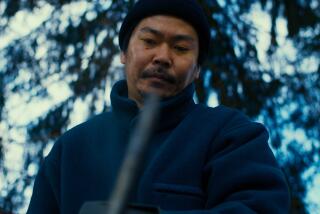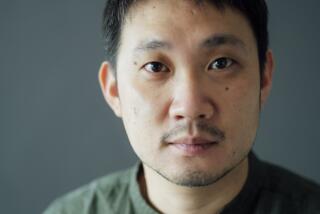Shusaku Endo; Japanese Novelist, Humorist
- Share via
TOKYO — Shusaku Endo, the Roman Catholic novelist who has been called the Japanese Graham Greene, died Sunday after a long illness. He was 73.
Endo was one of Japan’s most acclaimed novelists and had a wide international following. He won nearly every major Japanese literary award, had at least nine books translated into English and other languages, and was nominated several times for the Nobel Prize for literature.
Endo was both a novelist and a humorist. The book for which he is best known in the West--”Chinmoku,” published under the English title “Silence” in 1969--deals with Japanese Christians in 17th century Nagasaki, and the problems of faith and apostasy.
The book, which seemed to argue that Christianity would have to change radically if it were to put down deep roots in Japan, was a sensation here. It prompted wide debate and some outrage among Japanese Christians, and won Endo the Tanizaki Prize for literature.
Endo was born in Tokyo in 1923, but his family moved to Manchuria when he was a child. Although his mother was a devout Catholic, his parents divorced and he returned to Japan in 1933 to attend elementary and high school in Kobe. He was baptized a Catholic at age 12.
Poor health kept Endo from serving in the military during World War II. He was admitted to Keio University on his fourth try after failing the famous college’s entrance exam three times. He majored in French literature and in 1950 won a Catholic scholarship to University of Lyon in France. Endo returned to Japan to become a novelist. In 1955 he won Japan’s prestigious Akutagawa Prize for “Shiroi Hito” (White Man).
In 1957, he published “Umi no Dokuyaku,” (“The Sea and Poison”), in which he wrote about Japanese doctors vivisecting a captured American pilot. The book was a searing condemnation of the Japanese lack of moral conscience, a theme that Endo continued to explore.
Critic Jun Eto wrote that Endo’s work was notable for the lack of a father figure, commenting that “his Jesus is a mother-like figure.” Endo frequently said he wanted to create the image of a compassionate, forgiving Christ whom Japanese could more easily embrace.
Endo often said he was writing literature, not theology, but his works explored the problems the writer had in coming to terms with his foreign religion.
Father William Johnson, who translated “Silence,” wrote of the author’s conflict between “his Japanese sensibility and the Hellenistic Christianity that had been given to him.”
Endo wrote: “This problem of the reconciliation of my Catholicism with my Japanese blood . . . has taught me one thing: that is, that the Japanese must absorb Christianity without the support of a Christian tradition or history or legacy or sensibility.
“Even this attempt is the occasion of much resistance and anguish and pain. No doubt this is the peculiar cross that God has given to the Japanese.”
Endo had an older brother who excelled at everything and left the writer with an enduring sense of inferiority but also a sense of humor and compassion, the Nikkei Shimbun newspaper commented in today’s editions.
“His works reflect the viewpoint of the weak and the inferior,” the paper wrote. “In that sense, they can be seen as a literature of love.”
Endo’s best-selling “Deep River,” published in 1993, was made into a movie that was released this year. Among the other works that have been translated into English are “Scandal,” “Wonderful Fool, “Final Martyrs” and “Samurai.”
Endo died Sunday of respiratory failure after having been in and out of the hospital since last spring. He is survived by his wife, Junko, and son, Ryunosuke.
More to Read
Sign up for our Book Club newsletter
Get the latest news, events and more from the Los Angeles Times Book Club, and help us get L.A. reading and talking.
You may occasionally receive promotional content from the Los Angeles Times.







